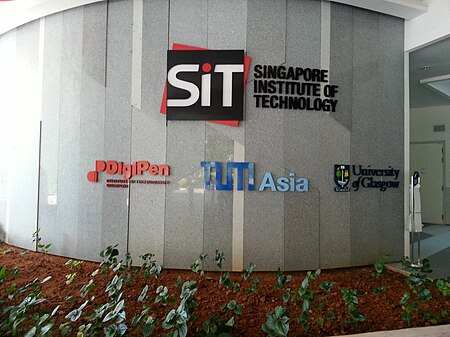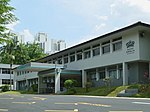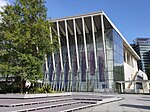Yale-NUS College is a liberal arts college in Singapore. Established in 2011 as a collaboration between Yale University and the National University of Singapore, it was the first liberal arts college in Singapore and one of the first few in Asia. Yale-NUS was the first institution outside New Haven, Connecticut that Yale University had developed in its 300-year history, making Yale the first American Ivy League school to establish a college bearing its name in Asia.
Yale-NUS is a four-year, fully residential undergraduate institution. The first class, the class of 2017, consisted of 157 students entering in 2013. At full capacity, the college has 250 students in each class. Students select their majors at the end of their second year, after two years of the Yale-NUS Common Curriculum, which was "built from scratch by the inaugural faculty, drew on the strengths of established liberal arts traditions, while introducing our students to the diverse intellectual traditions and cultures of Asia and the world". Students graduate with a Bachelor of Arts degree with Honours or a Bachelor of Science degree with Honours from Yale-NUS College, conferred by NUS.
About 58% of students at Yale-NUS are Singaporeans and 42% are international students. Yale-NUS College receives more than 10,000 applications annually and enrols 250 students per year, with an average acceptance rate of 5.2%. Apart from Singapore University of Technology and Design, Yale-NUS is the only other college in Singapore to follow a holistic admissions process similar to that followed by Yale and other American universities.
In August 2021, it was announced that Yale-NUS College will be merged with the NUS University Scholars Programme to form a new interdisciplinary honours college, with the Class of 2025 being the last cohort of Yale-NUS students. According to Pericles Lewis, this decision was part of NUS' plan for a "broader restructuring of Singapore’s educational offerings, one that had been conceived of in 2018". The new college will not feature liberal arts subjects in its core curriculum. In January 2022, it was announced that the provisionally-named New College would be named NUS College.










